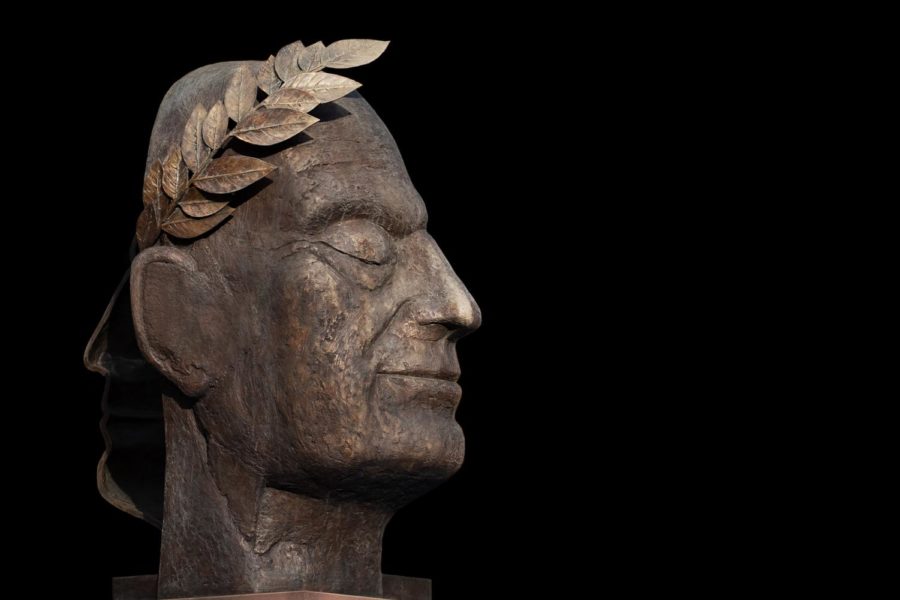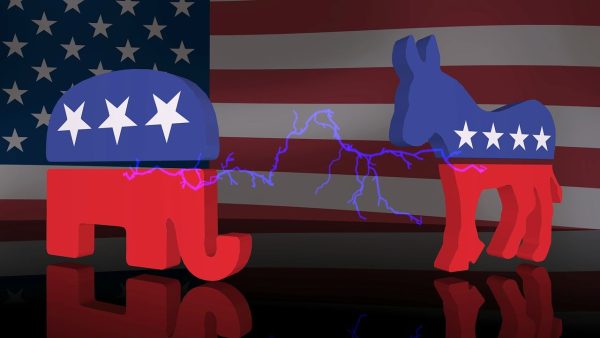The United States Inevitable Collapse? The Next Rome?
The Roman Empire was the most powerful civilization during its time and yet it collapsed. People nowadays call the United States the most powerful civilization of its time, with some saying it will face the same fate as the Romans. Rome used to be a Republic, whose lands expanded with its powerful armies and navies. One of world history’s most famous leaders, Julius Caesar, was the first authoritarian figure who was killed by his senators. Ironically, his death brought the age of autocracy, as it brought a new age of emperors like Octavian. This brought about Pax Romana, the golden age (27 BC to 180 CE), of increased, as well as, sustained Roman imperialism, order, prosperous stability, hegemonic power, and expansion. However, all good things came to an end, as the fall of the Roman Empire was coming nearer and quicker. Numerous factions, like the barbarians in the north and east, were vying for the lands that the Romans held. The internal instability was at an all-time high, as there were many civil wars and revolts within the empire, let alone the economy crashing ,led to the collapse of the Roman Empire. Now you might say, “These don’t sound like the United States at all,” well I will discuss the specifics, and the validity of the claims that have been mentioned.
We will start at the beginning, with Lucius Quintus Cincinnatus, whose character could be paralleled to George Washington. Cincinnatus was a Roman dictator who was given power by the Senate. Cincinnatus didn’t overstay his time in office, as he resigned the day he was no longer needed. The honor and integrity demonstrated by Cincinnatus to the Roman people made him a living legend, and an example of a good and virtuous leader. This sounds very similar to how George Washington is perceived today, as he almost immediately resigned as a general after the conclusion of the American Revolution. He also resigned after two terms of being President, setting the two-term tradition that bound every President, until FDR. He made a clear example of how a President should act and behave, which shouldn’t be disregarded anytime soon. Manifest Destiny could also be paralleled to Rome, as the Roman expansion was derived partly by the many poems and writings. One of the most famous poems is, “Aeneid,” which was the epic tale that inspired millions of Romans into the idea of expanding their borders. One quote from the epic poem, “On the Romans, I impose no boundaries of time or place: I have granted them empire without end.” This sounds oddly similar to the idea of Manifest Destiny in the United States. Manifest Destiny encouraged many to expand American borders and settle the west. One poem is, “A Divine Destiny for America,” by John O’Sullivan who mentions the fact that the United States’ role in the world is quite significant. Later on, he coined the term Manifest Destiny, which became very popular in American culture. The unique diversity of the United States could also be compared to the Roman Empire. The Roman Empire land’s had people from all different types of cultures and ethnicities, from the Egyptians, Greeks, Gauls, British, etc. Many of them did not have ties to Roman culture, religion, or language which had to be supervised by the army or governor to keep stability. This can be compared to the United States as the United States has always been the land of immigrants. Right now, immigrants from all over the world are immigrating to the United States, changing the demographics of the United States and its society.
The more immediate similarities between the two great “empires” were quite numerous as well. Both nations had massive amounts of foreign labor. The United States has used immigrants to work in factories since the 1800s, and the foreigners in Rome were building their mighty infrastructure. The Roman Empire also excessively printed money which made its currency inflated, which is similar to what’s happening in the United States. Both nation’s leaders underestimated their enemies, as the Romans thought the barbarians were weak, and yet they struck the mainland. The United States underestimated Islamic terrorists, as we kept giving weapons and aid, without having any knowledge of the consequences, as the infamous 9/11 proved. Both had huge military budgets that took away essential money from important services to their citizens.
However, I believe these claims will not come true. The extensive instability that plagues both the Roman Empire and the United States does not mean the United States will fall. Unlike the Roman Empire, the United States is a true republic, in which there would unlikely be a civil war (again), as people can vote for their leaders. However, the civil wars that were happening during the Roman Empire couldn’t be solved easily, as its system evolved around autocracy, which made it hard to pick a leader. The United States doesn’t have that issue. The flattering economies of both the Roman Empire, and the United States do raise some eyebrows, but their economies depend on different things. The Roman Empire used war and slaves to fuel its economy, however, when there was nowhere to expand and gain slaves, its economy dwindled. The United States economy depends on economic inequality, and we have many economic safety nets to fix this issue, making the U.S. very different from Rome. The military situation is quite different as well, as the Roman Empire had its enemies right on its borders. The United States has vast oceans to protect itself from any serious threat, and its navy makes sure the oceans stay that way. That’s not even addressing the mutually assured destruction, which makes most nations not go to war with each other, due to fears of nuclear destruction. These are just a few reasons why the United States won’t fall like the Roman Empire. Is it possible that the United States will fall similarly to Rome? Yes, of course, no nation is immune to collapse, everyone thought back in ancient times that Roman Empire would never collapse, and yet it did. I leave you with a quote, “A great civilization is not conquered from without until it has destroyed itself within,” – Ariel Durant.











